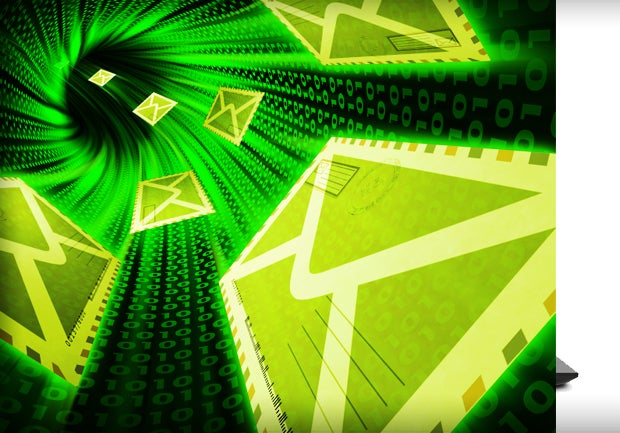Why you should ignore email
(MoneyWatch) COMMENTARY When I arrive at work in the morning, I usually find at least a dozen email messages waiting for me before I can take off my coat. If I take a day off from work, I can return to the office with more than 100, and as many as 200, unread messages. As the day goes on, I watch emails pour into my inbox like sand pouring through an hourglass. To ignore them for very long is to risk drowning in an undifferentiated sea of messages.
Is it any wonder that I live in a culture where responding to email is treated as priority one? Otherwise, we all run the risk of being utterly consumed by mail.
The problem with what might be described as the "brute force" approach to managing email is that more important priorities tend to take a back-seat. Forbes notes one British study that found that half of all information workers respond to an e-mail within 60 minutes of receiving it. That's great, if your job is dealing with email. But it probably isn't.
Maybe it's time to try to change the email culture that pervades modern corporations. Here's my list of ways to manage email. Do you follow any of these? How do your email habits compare? Sound off in the comments.
- Touch every email only once. Reply or delete it -- don't leave it to occupy more of your time again tomorrow.
- Triage your mail. You don't have to reply to everyone. Reply to what you must, delegate what you can, and delete the rest.
- Stop using dual monitors. If you're like most so-called knowledge workers, you simply use the second monitor to leave your email open all day long.
- Schedule time with email, but perhaps no more than twice a day. In between, close your email window entirely.
- Use the "Ignore Conversation" button in Outlook to automatically trash incoming messages that are part of a thread you don't need or want to see.
- Sort Outlook messages by conversation. That way you can see each message in context and deal with messages in priority order, not just the order in which they arrived.
- Respect everyone's time. That means minimizing the number of people you add to the TO and CC lines.
- Create email filters that automatically help manage your messages. For example, status reports and newsletters can be automatically directed to a folder outside the inbox for future review.
- Don't use the in-box as a to-do list. It's horribly inefficient as a task manager.
